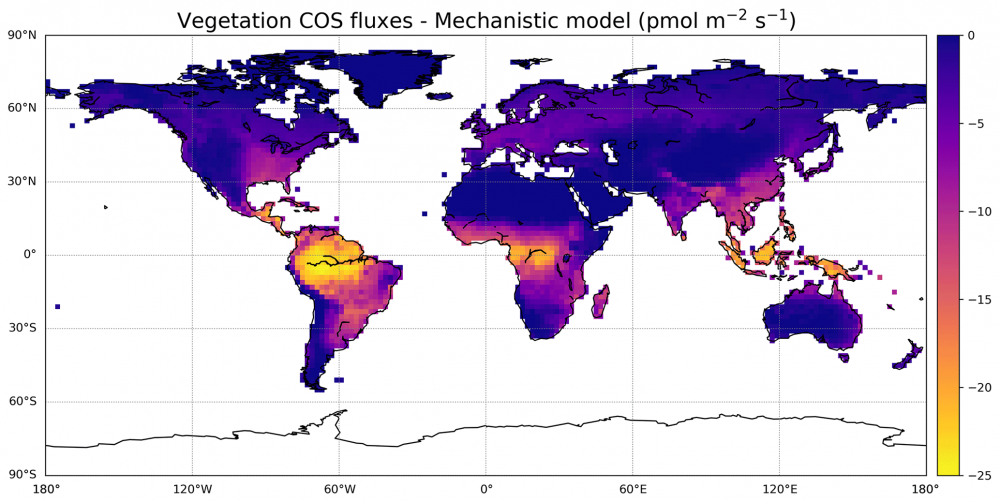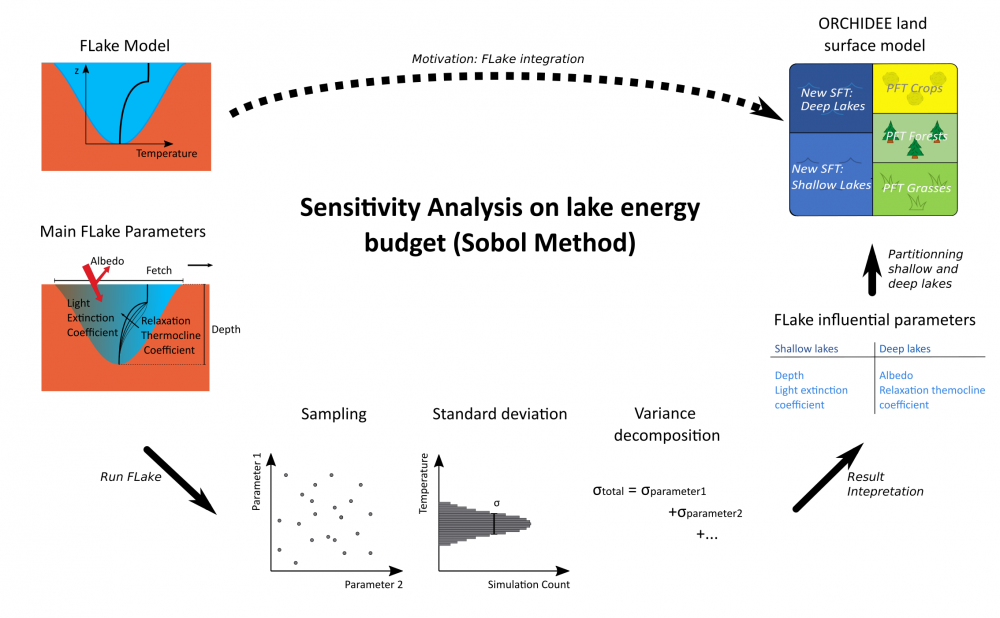03 novembre 2022
Gran Abuelo in Chile
Our colleague Jonathan Barichivich has estimated the age of this alerce at 5,484 years.
Article in The Guardian:
https://www.theguardian.com/environment/2022/sep/23/gran-abuelo-chile-world-oldest-living-tree-alerce
French podcat:
https://www.airzen.
17 mai 2021
Land surface modellers need measurable proxies to constrain the quantity of carbon dioxide (CO2) assimilated by continental plants through photosynthesis, known as gross primary production (GPP).
03 mai 2021
Given the ever increasing spatial resolution of climate models and the significant role of lakes on the regional climate, it becomes important to represent water bodies in climate models.
11 janvier 2021
Grasslands absorb and release carbon dioxide (CO2), emit methane (CH4) from grazing livestock, and emit nitrous oxide (N2O) from soils.
25 novembre 2020
Aerosol- and cloud-induced changes in diffuse light have important impacts on the global land carbon cycle, as they alter light distribution and photosynthesis in vegetation canopies. However, this effect remains poorly represented or evaluated in current land surface models.
13 octobre 2020
The Surface Water and Ocean Topography (SWOT) space mission will map surface area and water level changes in lakes at the global scale. Such new data are of great interest to better understand and model lake dynamics as well as to improve water management.
12 octobre 2020
To respect the Paris agreement targeting a limitation of global warming below 2°C by 2100, and possibly below 1.5°C, drastic reductions of greenhouse gas emissions are mandatory but not sufficient. Large‐scale deployment of other climate mitigation strategies is also necessary.
14 septembre 2020
En 2019, le Thème Cycles biogéochimiques et Transferts dans l'environnement a initié un cycle d'animations "projets" biannuelles sous forme de présentations suivies d'un échange.
26 septembre 2017
Sélectionné par l’ANR en 2016 et lancé en 2017, l’Institut Convergence Cland a pour objectif d'étudier la vulnérabilité des écosystèmes cultivés face au changement climatique et le contrôle des émissions de gaz à effet dans l’agriculture.












![[Vidéos] Animation projets Thème 2 - lundi 29 juin](https://www.lsce.ipsl.fr/Phocea/Images/ast_defaut.jpg)

